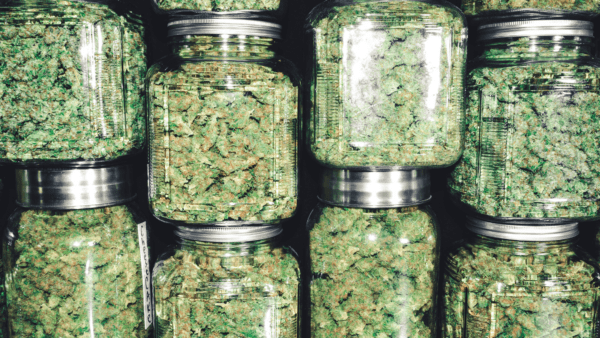Medical Editor: Dr. David Cox, PhD, ABPP
Cannabis oil is a product that is made by extracting the cannabinoids (such as THC or CBD) from cannabis buds and flowers. Recently, CBD products have gained popularity as a treatment for a number of ailments. CBD products that contain little to no THC are popular because they are legal in most states and provide pain relief benefits without the psychoactive properties of THC.
What is cannabis oil?
CBD and THC are the main active substances in cannabis plants. Cannabis oil contains one or both of these substances. The oil is extracted from a cannabis plant and then usually mixed with a carrier oil.
Cannabis oil can be consumed orally by placing a dropper under the tongue. It can also be used topically in the form of creams or lotions, to be used on skin problems such as eczema and psoriasis. Some people will also rub topical cream on sore muscles or joints to help with pain relief. Soft-gel capsules containing CBD oil (but not THC) are also becoming more popular and are sometimes mixed in with other supplements like probiotics.
There are several different types of cannabis oil:
- Isolate: contains only CBD and has no other cannabinoids. This oil contains no THC and has no psychoactive properties.
- Full-spectrum: contains all cannabinoids that are found naturally in cannabis plants, including CBD and THC. Full-spectrum CBD oil is only legal in some states.
- Broad-spectrum: contains multiple cannabinoids but does not contain THC.
- THC oil: contains mostly THC and therefore results in a person feeling “high”. THC oil sometimes also contains CBD.
Is CBD oil legal?
The laws around all cannabis products are complicated and vary by state.
CBD oil that does not contain THC or that contains less than 0.3% THC was made legal by the federal government in 2018 when President Trump signed the Agricultural Improvement Act of 2018, also known as the 2018 Farm Bill. This law removed hemp from the Controlled Substances Act, which allows CBD products made from hemp to be sold legally.
Although CBD oil is federally legal, state laws vary and can be complicated. You can find information on CBD laws in your state here.
Cannabis oil that contains THC is still illegal in most states, although many states are moving to legalize THC either for medical or recreational purposes.
Can cannabis oil help with pain management?
CBD and THC trigger the body’s cannabinoid receptors with different effects on brain chemistry which can cause certain mental or physical reactions. The high that a person gets from THC has been associated with improved pain-relief because it blocks the pain signals being transmitted to your brain. THC is sometimes used by cancer patients to reduce pain and nausea. However, for most people, walking around feeling high all day isn’t a reasonable solution to chronic pain, which is why some people choose to use CBD oil for pain management.
CBD oil doesn’t make a person feel high, but early clinical evidence suggests that CBD offers therapeutic benefits in some people and can provide pain relief in certain conditions, which may improve people’s quality of life. It has the potential to help with inflammation caused by certain autoimmune disorders, infections, or illnesses. Studies in animals show that CBD can help with pain. Evidence in animal studies showed that CBD oil works by interacting with the endocannabinoid system, the inflammation system, and pain sensing systems in the body. While the early research that has been done shows promising results, more research still needs to be done on human subjects.
Some people have reported that CBD oil can help improve sleep. For people who struggle with chronic pain this can be a major benefit, as their pain often keeps them from getting a good night’s sleep, which can result in even more complications such as brain fog and a weakened immune system.

Source: A Balanced Approach for Cannabidiol Use in Chronic Pain
Are there risks to taking CBD oil?
CBD can cause mild side effects like nausea, fatigue and irritability. There are no reported serious side effects with CBD products, although they can cause your blood to thin, which may be dangerous for some people.
Because CBD is considered a supplement and not a medication, there is no governmental regulation of CBD products, which means that purchasing them in a store can come with some risks. If not purchased from a reputable source, you run the risk of either purchasing a CBD product that is mixed with other chemicals, or a product that is not high-quality. Purchasing a CBD product that is mixed with other substances can be dangerous if you don’t know what’s in it. The biggest risk of purchasing a low-quality product is wasting money on something that isn’t what is being advertised.
The Bottom Line
Like many other psychoactive substances, the research on cannabis is ongoing. And while anecdotal reports from individuals and surveys suggest that CBD and THC can help with pain caused by chronic or acute inflammation, there is not enough research to definitively link the two. Where CBD and THC products are legal, it is ultimately up to the consumer to research the product and weigh the risks and benefits of use. If you are suffering from chronic pain or a chronic illness, you should consult your doctor or other health provider to see if cannabis oil might be a promising solution for you.









